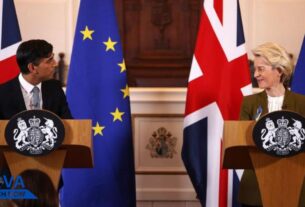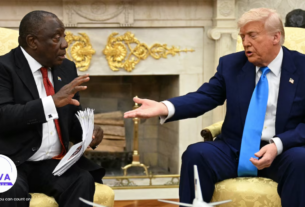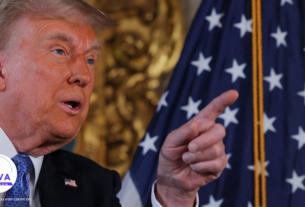Tensions have erupted within Reform UK just days after Nigel Farage’s dramatic return to frontline politics, as the party’s chairman publicly criticised its newest MP for calling for a ban on the burqa. Richard Tice, the party’s chairman and former leader, described the comments from Lee Anderson as “dumb,” sparking early signs of division as the party seeks to broaden its appeal ahead of the general election.
Anderson, who recently defected from the Conservatives and now represents Reform UK in Parliament, made headlines by suggesting that the wearing of burqas should be outlawed in the UK. His remarks quickly drew backlash from civil rights groups, religious organisations, and even members within his party.
In a radio interview, Tice was forthright in his disapproval. “We are a party of free speech and common sense,” he said. “But calling for a ban on what people choose to wear, that’s not our priority, and frankly, it’s a dumb thing to say.” His comments underscored growing concerns that inflammatory rhetoric could alienate voters Reform UK hopes to attract from across the political spectrum.
Nigel Farage, newly installed as party leader, has remained tight-lipped on the row, refusing to publicly back or condemn Anderson’s remarks. His silence has been noted by political observers, with some suggesting that he is attempting to maintain a delicate balance between free speech advocacy and the need to project a more professional image for the party.
Anderson, known for his combative style and blunt views, has doubled down on his position, arguing that the burqa is “a symbol of oppression” and that his comments reflect “what many people on the street are thinking.” Critics, however, accuse him of stoking division and using identity politics to score headlines in a highly charged pre-election climate.
The controversy threatens to overshadow Reform UK’s campaign messaging, which Farage has promised will focus on immigration control, economic reform, and restoring trust in British institutions. The party has been polling strongly in recent weeks, capitalising on Conservative Party woes and voter dissatisfaction with the status quo.
However, incidents like this could test Reform UK’s ability to remain a unified force as it transitions from a protest movement into a party vying for broader legitimacy. Internal disagreements over tone, strategy, and policy focus are likely to intensify as more high-profile figures join the campaign.
Political analysts note that while provocative statements may energise parts of the electorate, they also risk marginalising moderate voters who are wary of culture war politics. Reform UK’s challenge now lies in reconciling its populist roots with the discipline required for electoral success.
With just weeks to go before the general election, all eyes will be on Farage to see whether he can keep the party united and focused, or whether rifts like this one will derail its growing momentum.




